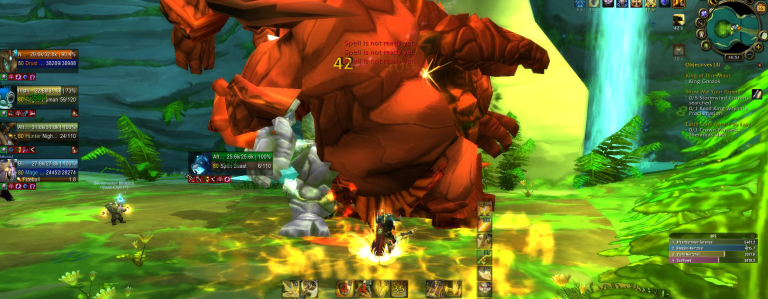Hey all,
At a meeting today at work one of my co-workers presented the staff with a video of Jane McGonigal at TED Talks speaking to her beliefs on how video games have affected, and can potentially affect individuals and society. McGonigal is a game designer and probably one of the most optimistic people I have ever heard speak, but that doesn’t mean that I don’t agree with her on many of her points. She is also the author of Reality is Broken: Why Games Make Us Better and They Can Change the World, one of the many books that is in my game-book-review queue. *whew*
McGonigal’s thesis is that by framing real-world problems, including those that are on the societal level, as games, we can tap into the incredible allure of games and use that power to help solve those problems.
McGonigal’s begins by explicitly stating how much people play games. It’s a lot. But more importantly than the how much is the why here; games are incredibly compelling for a number of reasons, such as instant gratification (push button, get reward), and the empowerment that they provide. All of this power is shaping gamers and their outlook on life. Here are some personality traits that McGonigal identifies in gamers:
- Urgent Optimism— the sense that any problem can be tackled and there is some chance of success, but that progress out to begin now.
- Social Fabric— by the virtue of playing a game with someone we are more likely to trust them and ask for their cooperation in solving a problem.
- Blissful Productivity— that there is a drive that gamers have that causes them to constantly work on a task until it is complete, and be happy while doing it.
- Epic Meaning— that there must always be some larger story, some larger reason that connects the individual activities.
If only we could harness all of these positive qualities to say, solve world hunger, or energy problems, we’d be set! Or so McGonigal believes. She describes several games that she has already developed which are meant to take advantage of these traits to alter behaviors in real life. For example, World Without Oil is about (surprise!) peak oil, and the player must adjust their lifestyle to accommodate for rising prices and then share their experiences with other gamers. I think the last part there is absolutely critical to the success of such a game because it allows for the player to validate their suffering (okay, maybe a bit dramatic here) and receive support.
There is also a key distinction that is made here: McGonigal does not mention anything about how well the shift of games as entertainment to games as a productivity tool would go over. There are different kinds of games that people play for an enormous number of reasons: sometimes you need to sit down and mindlessly blow up zombies in Left for Dead 2, sometimes you want to play with a large group of friends and will fire up World of Warcraft, or sometimes you want to be immersed in a deep and involving story and get into Mass Effect.
I don’t know that I’ve ever sat down and thought to myself, “I’m going to change the world right now.” Perhaps this means I’m not a very reflective person (probably false), or that I’m just plain selfish (true).
World Without Oil and the other games that McGonigal described are closer in kin to alternate reality games (ARGs) than they are to World of Warcraft or virtually anything other mainstream game out there, and that’s why I think that here is where her argument is suspect, at the very least on the scale that she is proposing. I think that games are amazing and awesome and have the potential to build communities, to empower individuals, to create friendships, to inspire creativity, and… to solve real-world problems, but only if the games are designed in a manner that makes them social experiences.
I think that McGonigal raises some good points about the value of games, for both individuals and for society at large, but I’m not yet convinced that the scale she imagines will come to pass. We’ll have to just see I suppose.
Cheers,
-S

Comments